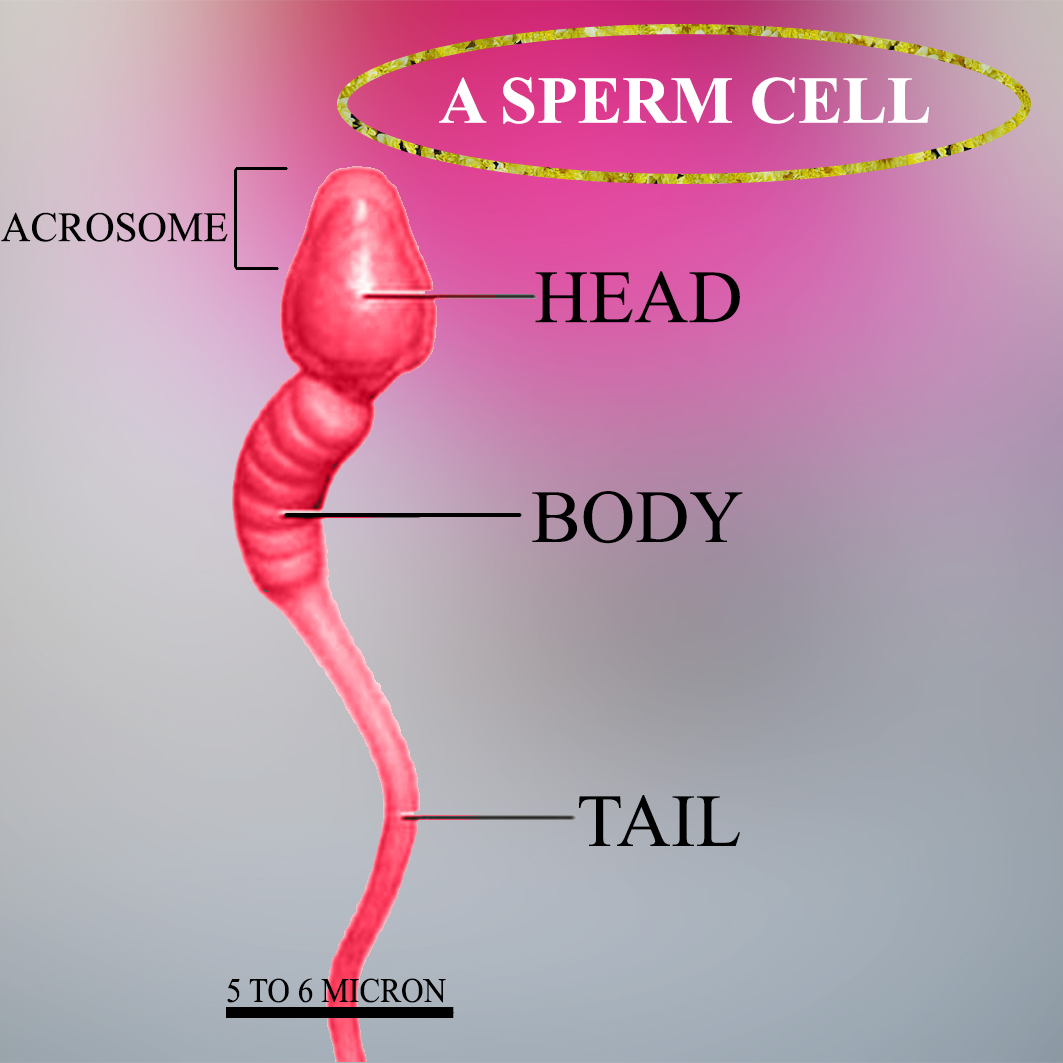
How many sperms are present in an average 3ml ejaculation ?
(a) 200 million
(b) 300 million
(c) 500 million
(d) 800 million
Answer
590.4k+ views
Hint: The number of sperms present in 1 ml of ejaculation of different men will always be different. Normally 100 million sperms are present in 1ml of ejaculation of a healthy adult man.
Correct step by step answer:
An adult man produces millions of sperm cells every day that means around 1000 sperm cells are produced every second. So, in an average 3ml ejaculation 300 million sperms are present.
The sperm cell is the male gamete and is produced in the male testicles in thin tubes. This tube leads to the epididymis. Here, in the epididymis, the sperm cells are stored until they become mature. The epididymis then leads the mature sperm to the spermatic cord, which on ejaculation sends sperm mixed in with fluid to the urethra, from which the semen is released.

So, the correct answer is,’300 million’.
Additional Information:
- The fluid in which the sperms float is secreted from the seminal vesicles and the prostate gland and gets mixed with the sperm to provide the liquid medium.
- From the early stage to full maturity, it takes about 3 months to produce a sperm cell.
- Normally, an amount of 2-6 ml of seminal fluid containing sperm is ejaculated, typically containing 60-450 million sperm cells. That means the normal sperm density ranges from 15 million to greater than 200 million sperm per milliliter of semen.
- The amount of seminal fluid does not necessarily provide an indication of the quality of the sperm cells and this may vary from 2 to 8 ml and still be regarded as normal.
- The average volume of ejaculate is around 3 ml. If you have fewer than 15 million sperm per milliliter or less than 39 million sperm total per ejaculate, this shows that you are considered to have a low sperm count.
- Doctors may also prescribe medications, such as anti- estrogens or gonadotropin therapies, which are hormones that can boost fertility or sperm count.
Note:
- Some changes in diet can help a man to improve sperm count. Oysters and pumpkin seeds are very high in zinc, which may increase testosterone, sperm motility, and sperm count.
- As part of a semen analysis, laboratories can measure sperm count.
- Low sperm count can be treated medically with the help of hormonal medicines.
Correct step by step answer:
An adult man produces millions of sperm cells every day that means around 1000 sperm cells are produced every second. So, in an average 3ml ejaculation 300 million sperms are present.
The sperm cell is the male gamete and is produced in the male testicles in thin tubes. This tube leads to the epididymis. Here, in the epididymis, the sperm cells are stored until they become mature. The epididymis then leads the mature sperm to the spermatic cord, which on ejaculation sends sperm mixed in with fluid to the urethra, from which the semen is released.

So, the correct answer is,’300 million’.
Additional Information:
- The fluid in which the sperms float is secreted from the seminal vesicles and the prostate gland and gets mixed with the sperm to provide the liquid medium.
- From the early stage to full maturity, it takes about 3 months to produce a sperm cell.
- Normally, an amount of 2-6 ml of seminal fluid containing sperm is ejaculated, typically containing 60-450 million sperm cells. That means the normal sperm density ranges from 15 million to greater than 200 million sperm per milliliter of semen.
- The amount of seminal fluid does not necessarily provide an indication of the quality of the sperm cells and this may vary from 2 to 8 ml and still be regarded as normal.
- The average volume of ejaculate is around 3 ml. If you have fewer than 15 million sperm per milliliter or less than 39 million sperm total per ejaculate, this shows that you are considered to have a low sperm count.
- Doctors may also prescribe medications, such as anti- estrogens or gonadotropin therapies, which are hormones that can boost fertility or sperm count.
Note:
- Some changes in diet can help a man to improve sperm count. Oysters and pumpkin seeds are very high in zinc, which may increase testosterone, sperm motility, and sperm count.
- As part of a semen analysis, laboratories can measure sperm count.
- Low sperm count can be treated medically with the help of hormonal medicines.
Recently Updated Pages
Master Class 12 Economics: Engaging Questions & Answers for Success

Master Class 12 Physics: Engaging Questions & Answers for Success

Master Class 12 English: Engaging Questions & Answers for Success

Master Class 12 Social Science: Engaging Questions & Answers for Success

Master Class 12 Maths: Engaging Questions & Answers for Success

Master Class 12 Business Studies: Engaging Questions & Answers for Success

Trending doubts
Which are the Top 10 Largest Countries of the World?

What are the major means of transport Explain each class 12 social science CBSE

Draw a labelled sketch of the human eye class 12 physics CBSE

Why cannot DNA pass through cell membranes class 12 biology CBSE

Differentiate between insitu conservation and exsitu class 12 biology CBSE

Draw a neat and well labeled diagram of TS of ovary class 12 biology CBSE




